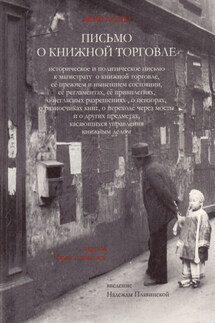The Great Boer War - страница 69
It was nine o'clock and pitch dark when the column moved out of Molteno and struck across the black gloom of the veld, the wheels of the guns being wrapped in hide to deaden the rattle. It was known that the distance was not more than ten miles, and so when hour followed hour and the guides were still unable to say that they had reached their point it must have become perfectly evident that they had missed their way. The men were dog-tired, a long day's work had been followed by a long night's march, and they plodded along drowsily through the darkness. The ground was broken and irregular. The weary soldiers stumbled as they marched. Daylight came and revealed the column still looking for its objective, the fiery General walking in front and leading his horse behind him. It was evident that his plans had miscarried, but his energetic and hardy temperament would not permit him to turn back without a blow being struck. However one may commend his energy, one cannot but stand aghast at his dispositions. The country was wild and rocky, the very places for those tactics of the surprise and the ambuscade in which the Boers excelled. And yet the column still plodded aimlessly on in its dense formation, and if there were any attempt at scouting ahead and on the flanks the result showed how ineffectively it was carried out. It was at a quarter past four in the clear light of a South African morning that a shot, and then another, and then a rolling crash of musketry, told that we were to have one more rough lesson of the result of neglecting the usual precautions of warfare. High up on the face of a steep line of hill the Boer riflemen lay hid, and from a short range their fire scourged our exposed flank. The men appear to have been chiefly colonial rebels, and not Boers of the backveld, and to that happy chance it may be that the comparative harmlessness of their fire was due. Even now, in spite of the surprise, the situation might have been saved had the bewildered troops and their harried officers known exactly what to do. It is easy to be wise after the event, but it appears now that the only course that could commend itself would be to extricate the troops from their position, and then, if thought feasible, to plan an attack. Instead of this a rush was made at the hillside, and the infantry made their way some distance up it only to find that there were positive ledges in front of them which could not be climbed. The advance was at a dead stop, and the men lay down under the boulders for cover from the hot fire which came from inaccessible marksmen above them. Meanwhile the artillery had opened behind them, and their fire (not for the first time in this campaign) was more deadly to their friends than to their foes. At least one prominent officer fell among his men, torn by British shrapnel bullets. Talana Hill and Modder River have shown also, though perhaps in a less tragic degree, that what with the long range of modern artillery fire, and what with the difficulty of locating infantry who are using smokeless powder, it is necessary that officers commanding batteries should be provided with the coolest heads and the most powerful glasses of any men in the service, for a responsibility which will become more and more terrific rests upon their judgment.









